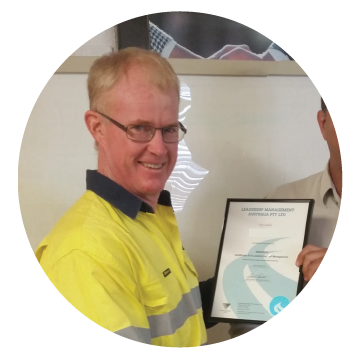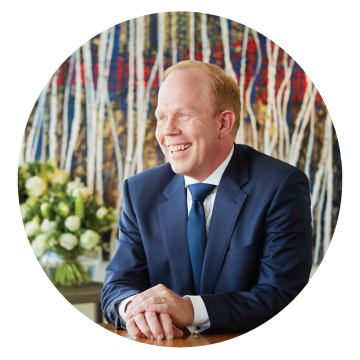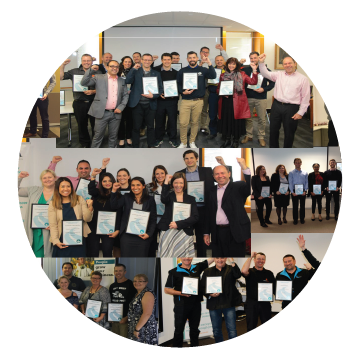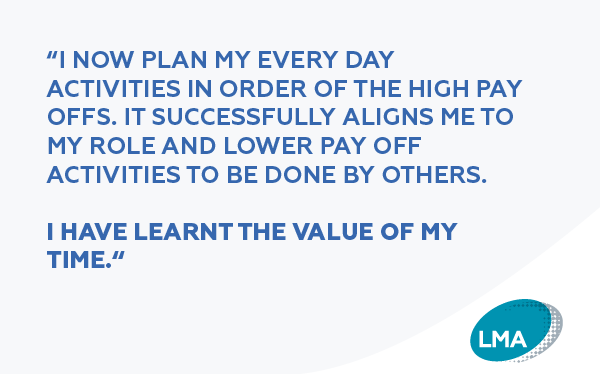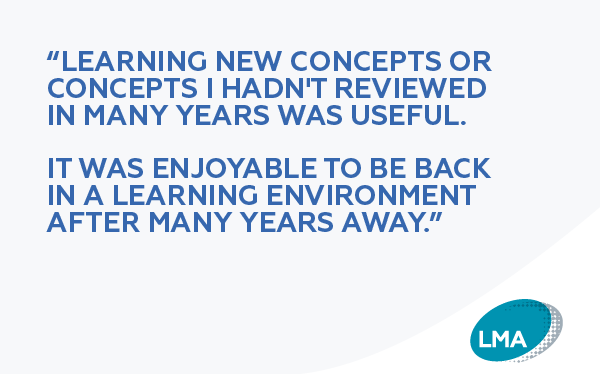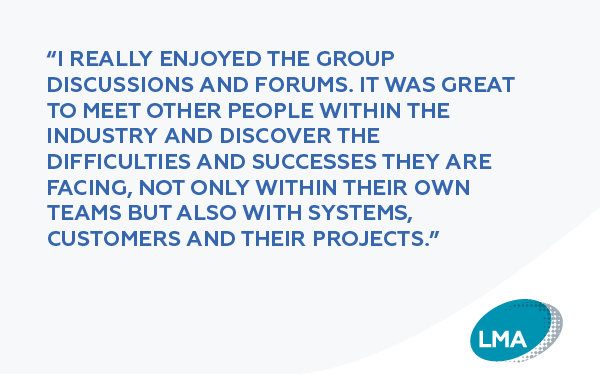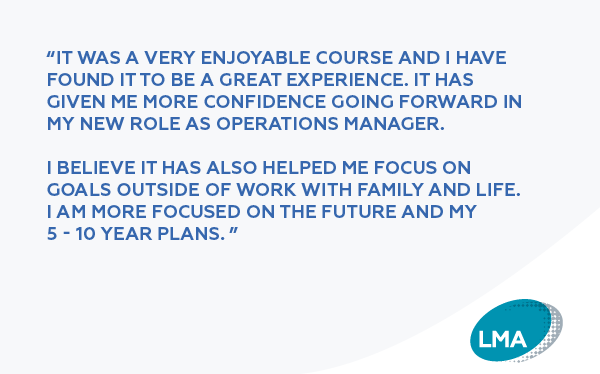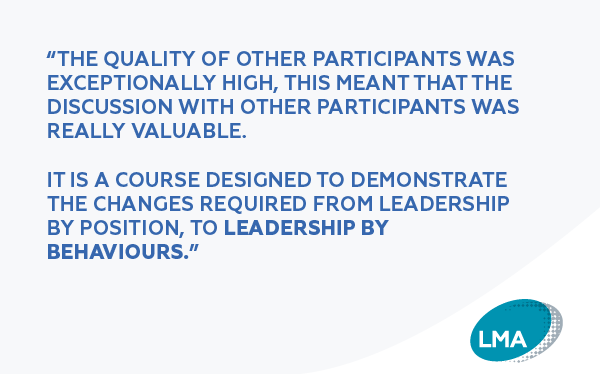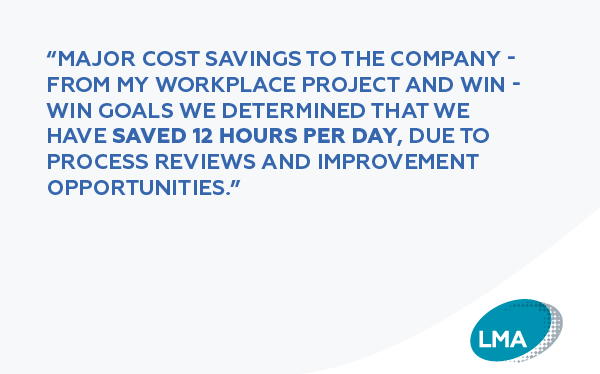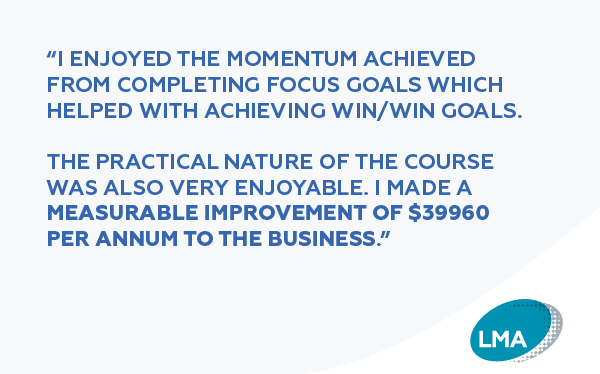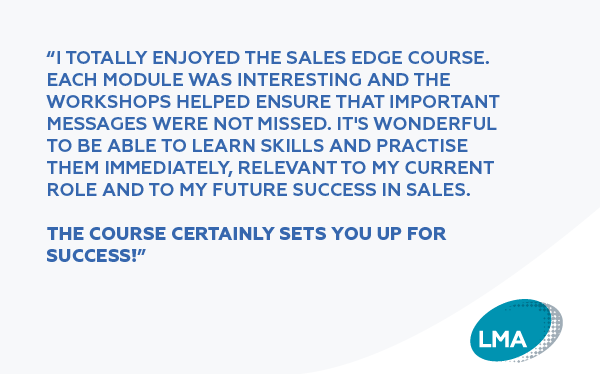FOCUS & LEAD BY EXAMPLE
As Leaders we have the opportunity to set the standard for improved personal productivity by leading by example in our attitudes, actions and communications. However the challenge is to remain focused amidst all the distractions of the day to day workplace. When you are focused on the organisation’s direction and the performance goals of your overall team, you are able to identify priorities across your department. You can then determine the High Payoff Activities (HPA’s) that will help you and the others achieve their priorities and goals.
FOCUS ON HIGH PAYOFF ACTIVITIES (HPA’S)
The quickest and most effective way to increase productivity is to spend time and effort on the activities that create the highest payoff and advance you towards the important goals – your HPA’s. Pareto’s principle states that 80 percent of our results are achieved through 20 percent of our activities. The remaining 80 percent of our activities produce 20 percent of our results. Ensure that you have identified your HPA’s and focus your time on the work that really matters. Otherwise you may be consumed by trivial activities and details. As a leader you may be spending time completing tasks or solving problems that can be completed or solved by others.
EMPOWER, DELEGATE AND TRAIN
Empower, delegate and train others to complete tasks that are not your priority and to solve their own problems rather than constantly bringing them to you. This approach saves you valuable time and gives others the opportunity to develop their own skills. In the process you will increase their confidence, engagement and sense of ownership when it comes to new tasks, problem solving and the results that they achieve. Also, as the leader, help others in your team to identify and spend their time on their own HPA’s to improve their productivity.
GET STARTED
There are 2 reasons that account for failure to achieve goals, or to accomplish important jobs or tasks. People either never START or they never FINISH.
Begin on the important work and continue without relying on the emotion of “Feeling like doing it”. Getting started is often the most difficult part of the project. Some people put off getting started as they are waiting to have all of the information and resources available or waiting for the right time to start. In some cases you may never have all the information and some jobs may never be easy, now or at a later date. Develop a step by step plan of action by breaking the project down into more manageable logical smaller action steps to achieve at each stage. As you start achieving each of these steps in a systematic method, you will be able to tick them off and enjoy the sense of accomplishment that enables you to complete the project.
EXERCISE SELF DISCIPLINE
Self-discipline enables leaders to stay focused on the task and work through until it’s completed. Once you establish your priorities, avoid all distractions or interruptions that sway your focus and concentration from the completion of the task.
Discipline yourself to give the tasks only the amount of time and effort they really deserve from you. Otherwise delegate them to other appropriate team members. As a leader, either of these actions will require thoughtful evaluation and consideration as well as the application of strong leadership self-discipline.
ENGAGE YOUR PLANNING SKILLS AND PERSISTENCE.
As leaders, careful planning and goal setting, combined with our determination to succeed, are vital to ensuring that we maintain and improve our own personal productivity. This combination of factors enables us to be persistent.
Persistence is always a major characteristic of successful individuals and leaders. Many people eagerly take on new jobs, new responsibilities or new assignments starting with a great splash of enthusiasm, excitement and progress. However, they soon lose momentum and focus, never completely finishing the job. In contrast, productive people set definite goals and priorities, plan carefully and then focus and concentrate their attention on what is required to complete the goal. Persistent leaders keep their goals in mind and work tenaciously towards achieving them. Your persistence will also become an important characteristic to model for your team.
STRIVE FOR RESULTS NOT PERFECTION
For many leaders an over emphasis on perfection can lead to negative outcomes. Productive people decide what’s important and what’s not. They set aside a reasonable amount of time to accomplish a specific task and stick to their deadlines. They are also conscious of the standards and quality factors required.
Even on genuinely significant projects, truly productive individuals strive for results, not 100 percent perfection. Effective leaders recognise that some tasks are simply not important enough to require their time or effort. When you focus on improving your own productivity through focusing on priorities, delegating, getting started, exercising self-discipline and demonstrating persistence, you role model the behaviours that you want your team members to emulate and copy.
Leading by example and improving your own personal product performance and productivity is one of the most effective ways of ensuring that your individual team members and the team as a whole becomes more focused and more productive.
The majority of our readers enjoy either an informal or formal leadership role. However, every single leadership role is unique. Titles given to leaders vary substantially and the responsibilities vary from department to department and organisation to organisation. But, no matter how different the title, the job description or the nature of the product or service of the organisation, all leaders have one important common responsibility. They are all responsible for achieving certain results, performance and productivity with and through other people. It’s the leader’s role to harness the unique potential of those they lead to bring about exceptional results and achieve the team and organisational goals.
Leadership goes beyond management. Genuine leadership involves gaining engagement and commitment from those you lead so they, like you, understand and willingly play their part in the overall purpose and success of the organisation. Leadership involves the ability to communicate, to enable and to empower people to take meaningful and productive actions. Leadership is the ability to take others to new heights.
Successful leaders recognise that the outcomes they achieve are determined by the quality of their leadership, the clarity of their communication and the strength of their relationships. Leaders who develop their skills in these areas the most, achieve the highest productivity and produce the most outstanding results. However, most leaders are focused on and concerned about improving two different kinds of productivity and results. Their own personal performance, productivity and results as well as the performance, productivity and results of their team.
Although these two areas of focus may at first seem unrelated, in a practical sense, personal and team productivity are intertwined, synergistic and cannot be separated. A leader must demonstrate and model the attitudes and behaviours that he or she expects others in the team to follow. These team members’ attitudes, behaviours and activities determine the success of the team. By developing the correct attitudes and behaviours in each person, the overall team productivity and results will grow.
Over the next 12 months, our communications will be focused on providing insights and valuable suggestions for developing leadership skills, improving results and achieving greater success.
In each calendar quarter we will focus on one particular aspect of developing personal and team success.
July – Productivity
August to October – Communications and Relationships
November to January – Continuous Improvement
February to April – Culture
May to July – Leadership
At LMA we are totally committed to providing you with valuable information and insights that you can translate into actions and activities in the workplace to achieve greater results and success.


